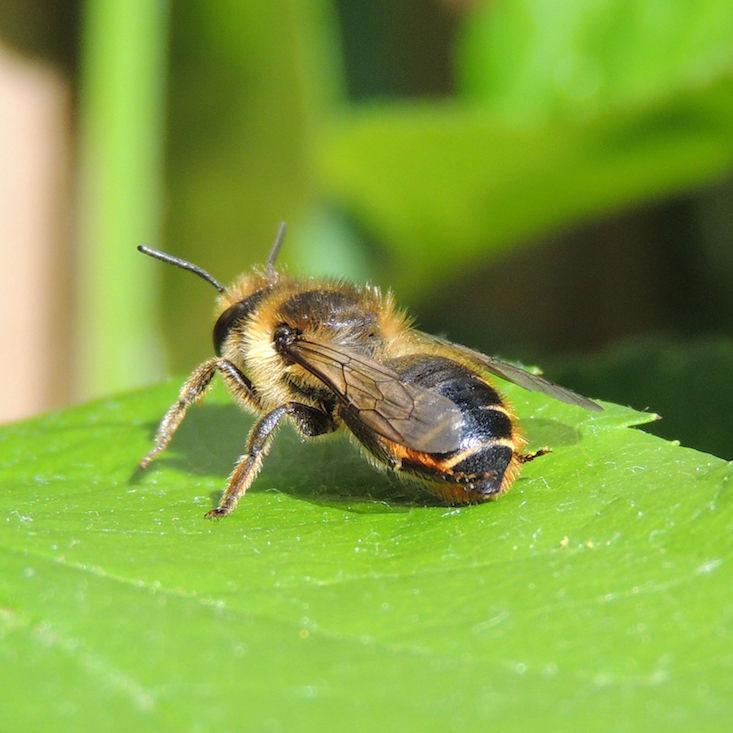
Bees are emblems of social complexity. Their honeycombs—intricate lattices dripping with food—house bustling hive members carrying out carefully orchestrated duties like defending against predators and coordinating resource collection. Much of our own success is due to this sort of division of labor. Clearly, in the animal kingdom, it pays to be social: Certain neurons make us resent being alone. You could be forgiven for assuming that complex social organization is the—or at least a—pinnacle of evolution.
Yet out of the 20,000 known species of bees, only a few are social. Some bee species have even given up social behaviors, opting for the single life. Why?
Sometimes everybody wins when you go it alone.
For one, as introverts know well, socializing requires lots of energy. Highly complex societies of insects require an elaborate arsenal of chemical and physical signals to direct their communal behavior. Social bees have more highly developed exocrine glands than their solitary cousins, and solitary halictid bees have less sensory hairs on their antennae than their social precursors. Solitary and social halictids also have different odorant systems, which play an important role in social bee communication and recognition. As the environment comes up with new demands, and the genetic makeup of the hive adapts, these features might just stop being worth the investment.
For another, being social can be stunting—sometimes bees have to grow up fast to survive. Researchers at Whitman College in Washington found that the region of the newly hatched antisocial orchard bee’s brain responsible for foraging ability is about as developed as the corresponding region in the experienced forager honey bee. Antisociality encourages self-sufficiency. Orchard bees must each fend for themselves, and they emerge into the world knowing how to forage for food. For honey bees, on the other hand, only a portion of the hive has to forage at any given time.
How do solitary species evolve to reap these benefits after having been social? After all, antisociality cropping up, in conjunction with other stressors, can mean the collapse of the entire hive—by increasing the minimum amount of social bees needed to sustain a hive, and decreasing the maximum amount of bees a hive can stably carry. So the prevalence of loners is not exactly favorable.

Variability in social behavior is one possible answer. H. rubicundus, a sweat bee descended from social ancestors in the Halictidae family, has both solitary and social populations in Europe. Bees living in different environments prefer different behaviors: In warm climates, H. rubicundus populations favor hive-formation, while in the cold, they tend to go solo.
It also turns out that, even in a highly coordinated hive, antisocial individuals persist. And they appear to be tolerated by other bees in the colony. If a few loners find themselves in a new situation where solitary behavior is advantageous—say the growing season is short and bees need to get up and go without dividing tasks—an asocial species could arise.
Changes in host plants can also lead social bees to revert to solitary behavior. Depending on the bee’s environment and needs, specializing on one plant is usually more beneficial in a hive context, where the whole activity of the hive can be coordinated around a constant resource. Solitary bees are usually generalists—they buzz along from plant species to plant species.
Sociality is no pinnacle of evolution. It’s just another result of the process. Reclusive bees and other species are doing just fine—and sometimes, even better. Clearly social behavior has advantages, seeding the survival of species and communities. But being a good neighbor is not the only benefit to the hive. Sometimes everybody wins when you go it alone.
Silvia Golumbeanu is an editorial intern at Nautilus.






























